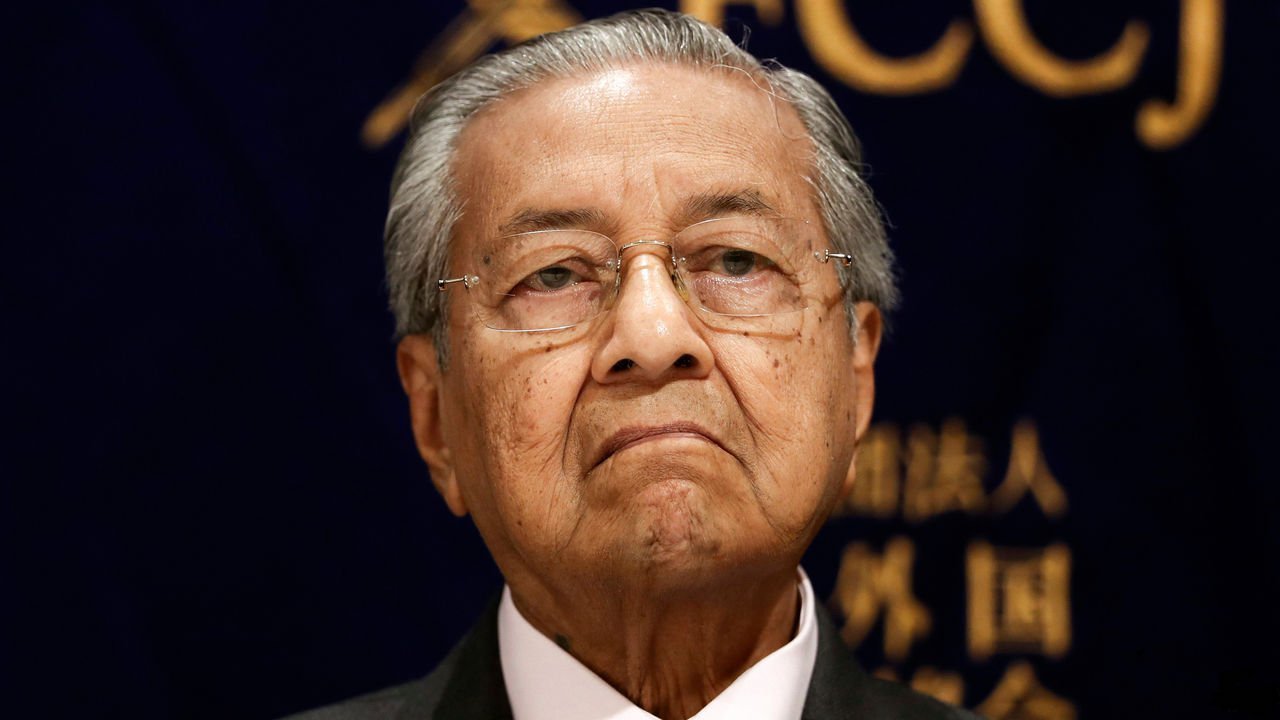After ruling Malaysia for a total of 24 years, the country’s 94-year-old Prime Minister Mahathir Mohamad announced his shock resignation on February 24. The move followed months of in-fighting over Malaysia’s political succession.
Five days later, the Southeast Asian country had a new Prime Minister, Muhyiddin Yassin, and the prospect of a new government that could bring the former ruling United Malays National Organization (UMNO) back into power after its historic defeat two years earlier.
How did such a reversal take place?
Many lauded the first-ever victory by Malaysia’s opposition parties in the 2018 election as a decisive democratic turning point in the country’s history. After ruling the country since independence in 1957, the defeat of the UMNO-led Barisan Nasional certainly was a political earthquake.
However, the opposition Pakatan Harapan (Alliance of Hope) coalition not only included a political party comprised mainly of rebel UMNO members; it was also led by former UMNO Prime Minister Mahathir.
Mahathir’s presence at the helm of the opposition certainly played a significant part in persuading as much as a third of the country’s ethnic Malays to abandon support for UMNO. As PM between 1981 and 2003, Mahathir presided over an era of rapid economic growth during which he was also a vocal proponent of Malay rights and affirmative action to address ethnic inequalities.
Many of those who switched support in 2018 did so less because they wanted a “brave new dawn” but instead out of a nostalgia for the tried and tested leadership of Mahathir.
Political Feud
The in 2018 elected Alliance of Hope also appeared to have ended the long-time political feud between Mahathir and his former deputy Prime Minister Anwar Ibrahim. Initially hand-picked by Mahathir to be his successor, the two men became bitter rivals in the aftermath of the 1997-1998 Asian financial crisis.
After being dismissed from both UMNO and the government in 1998, Anwar inspired a coalition of reform groups to coalesce into the Reformasi movement that took to the streets in their thousands demanding change.
In retaliation, Mahathir had Anwar arrested on charges of sodomy and corruption. Following a highly politicized trial, Anwar was convicted on both charges and imprisoned. Over the next decade Anwar’s conviction would be overturned by the High Court, he would return to politics as the leader of the Peoples’ Justice Party (which had grown out of the earlier Reformasi movement), he would be convicted and imprisoned again, only to be eventually pardoned following the election victory of the opposition coalition led by Mahathir in 2018.
Mahathir’s Return to Power
Mahathir’s return to power was largely motivated by his growing disdain for the corruption of Najib Razak’s administration (2009–2018) and the damage it had on Malaysia’s international reputation. Lacking a nation-wide movement or political party apparatus to harness, Mahathir chose to make peace with his long-time rival Anwar to secure the leadership of a coalition that would be dominated by Anwar’s party.
An implicit deal was subsequently struck whereby Mahathir would not serve a full term as prime minister but instead would hand over power to Anwar at an unspecified date during the administration.
Inevitably, given their past rivalry, the lack of an agreed date for such a handover led to intra-party and inter-party fighting and jockeying for power. Mahathir did little to stop this factionalism emerging and further frustrated Anwar and others by blocking political reforms.
When rumors began circulating that Mahathir had decided he needed more time to “clean up the mess,” Anwar’s supporters began to cry foul and openly attack the prime minister. The friction ultimately led to divisions within Anwar’s party. A small group began to unite around finance minister Azmin Ali as a potential alternative successor to Anwar, culminating in Azmin’s staged walkout from the party congress in December last year.
However, when Mahathir learned that members of his own party Bersatu had planned a meeting both with members of UMNO and Azmin’s supporters to discuss the potential for forming an alternative government, he decided to resign as prime minister.
Daring Gambit?
Some analysts suggest that the whole thing was a daring gambit by a seasoned Machiavellian politician. Resigning would present Anwar and the Alliance of Hope with a “done deal,” back Mahathir for a full term, or face the prospect of losing power and letting UMNO back in.
If this was the ruse, it appeared at first to work. After initially ruling out working with Mahathir, Anwar and the constituent parties of the Alliance of Hope reaffirmed their support for him as prime minister.
Mahathir, for his part, refused to tolerate cooperating with UMNO declaring they had been part of “the kleptocratic administration which the Pakatan Harapan Government had worked hard to [get] rid of.” They had the votes. Unfortunately, Malaysia’s king instead appointed Muhyiddin as Malaysia’s new prime minister, claiming that he had received sufficient acknowledgments of backing in discussions with MPs.
With Alliance of Hope vowing to table an immediate confidence vote when parliament resumed on March 9, Muhyiddin chose to postpone the next meeting to May 18. It remains unclear whether Muhyiddin has sufficient votes to form a new government as there are already signs of unease within Bersatu about how events in the past few days have unfolded. In the meantime, Muhyiddin has vowed to appoint a new cabinet.
Few can guess how all this will unfold. What is certain is that at the center of it all will remain two men whose turbulent relationship has not only shaped the country’s politics for over two decades but left an indelible mark on it.



